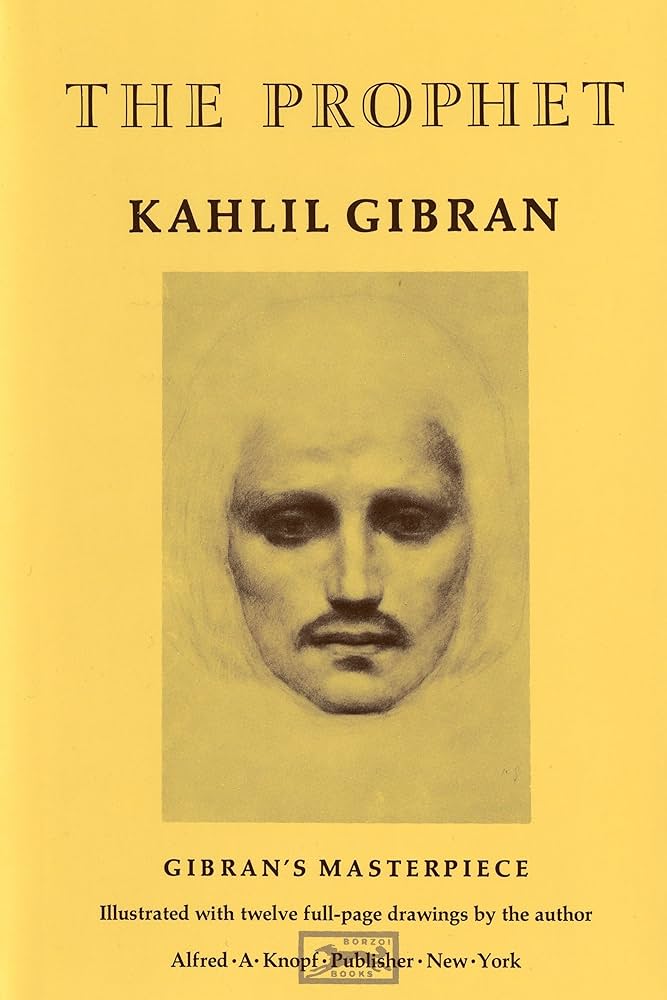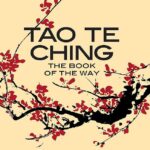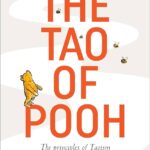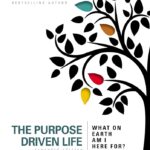Welcome to Thinkers Books, where we delve into the profound wisdom encapsulated within timeless literary works. Today, we present a remarkable piece of literature, ‘The Prophet’ by Kahlil Gibran.
‘The Prophet’ is not just a book but a spiritual guide filled with wisdom that has touched millions of hearts worldwide with its profound insights and poetic elegance. This classic work comprises 26 lyrical essays, each exploring different aspects of human existence. The author, Gibran, uses the character Almustafa, the beloved prophet, to convey these insightful teachings. As Almustafa prepares to leave the city of Orphalese after twelve long years, the citizens beseech him to share his wisdom on life’s significant matters.
Gibran explores themes of love, marriage, children, giving, pain, and death. His teachings on love guide us towards our highest selves, even if the path is steep and laden with thorns. In discussing marriage, he emphasises its sanctity and how it should be a pillar of strength rather than a chain of possession. About children, Almustafa gently reminds parents that while children come through them, they are not of them. They are independent beings with their destinies, deserving of their growth and evolution. On giving, Gibran underscores the sheer joy of giving wholeheartedly, devoid of any expectation of reciprocation.
This brief overview shows that ‘The Prophet’ is a treasure chest with wisdom, offering practical implications for our day-to-day lives.
Here are the top five learning points gleaned from this enlightening book:
- Love freely and fearlessly: Love is portrayed as a transformative force in Gibran’s work. It’s not merely an emotion but a spiritual journey that brings us closer to our true selves. However, love often involves pain and suffering. Gibran also encourages us to embrace this aspect of love, as it leads to personal growth and self-discovery. He asserts that love demands nothing less than everything, and though it may strip us bare, it eventually leads us to our highest potential.
- Maintain individuality in relationships: In the discourse on marriage, Almustafa points out the importance of maintaining essence within a relationship. He suggests that couples should stand together yet apart, like pillars of a temple. The key is to create a harmonious balance between togetherness and individuality, giving space for personal growth while nurturing the relationship. This principle can be applied to all kinds of relationships, not just marital ones.
- Allow children freedom: Almustafa’s teachings about children emphasise respecting their individuality and independence. Parents are urged to provide guidance and support but not to impose their dreams and aspirations on their children. Each child has a unique destiny to fulfil. They come from their parents but are not their parents’ possessions. This approach fosters a healthy parent-child relationship based on respect and understanding.
- Give with an open heart: Giving is another central theme in ‘The Prophet’. Gibran emphasises that giving should not be driven by a sense of duty or expectation of return but should come from a place of joy and generosity. It is in giving that we truly receive, as it enriches our spirit and connects us with others. Whether material possessions, time, or love, offer willingly, joyfully, and unconditionally.
- Welcome all life experiences: Life combines joys and sorrows, successes and failures, love and pain. Almustafa encourages us to welcome all these experiences, as each brings unique lessons and opportunities for growth. Pain and suffering have their purpose, as they make us more refined. By viewing every experience as an opportunity for learning and development, we can lead a more fulfilled and enlightened life.
These insights from ‘The Prophet’ serve as practical life lessons, guiding us toward wisdom, self-discovery, and enlightenment. By applying these principles, we can navigate life’s challenges more effectively and live in greater harmony with ourselves and others.
In conclusion, ‘The Prophet’ transcends the definition of a book; it’s a manual for life. Its teachings have been instrumental in personal journeys, and we hope they’ll illuminate your path, too. We invite you to share your thoughts and experiences related to this book.
We encourage you to continue exploring more summaries from Thinkers Books. Remember, life is a perpetual learning journey, and every book brings a fresh perspective. Embrace everything life offers, the joys and the sorrows; each moment is a stepping stone towards becoming a better version of yourself. Thank you for joining us, and until next time, keep thinking and learning.







